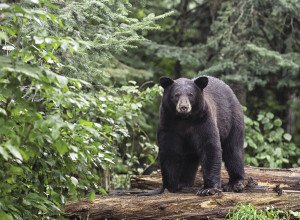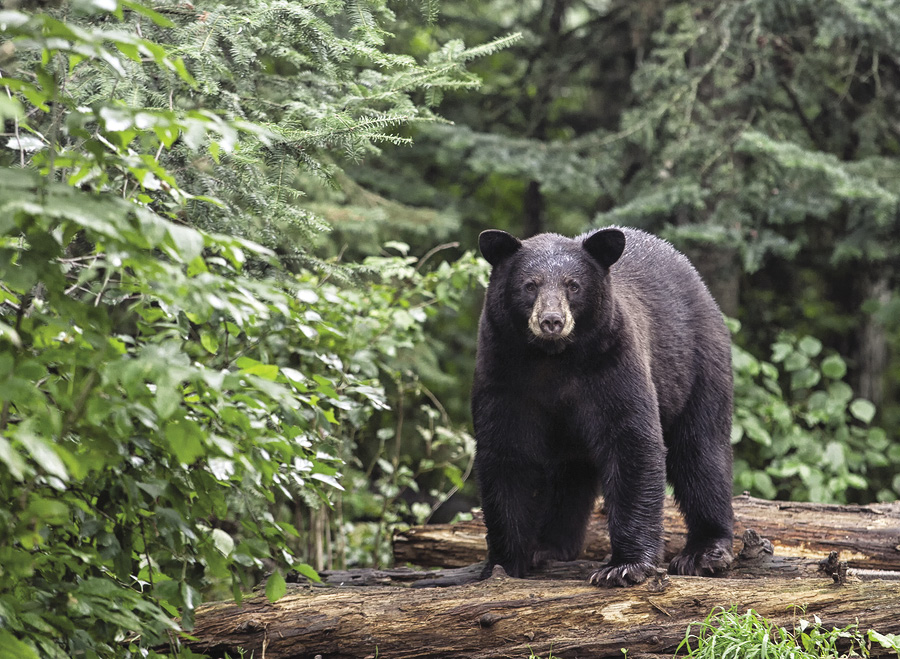
ST. PAUL—Homeowners who live near bear habitats need to be bear-aware and check their property for food sources that could attract bears. Allowing bears to forage for food in a yard can present dangers to bears and people, according to the Minnesota DNR. Bears may be tempted by dog food, livestock feed, birdseed, compost or garbage. Although bears are normally shy and usually flee when encountered, they may defend an area if they are feeding or are with their young.
The DNR does not relocate problem bears. Relocated bears seldom remain where they are released. They may return to where they were caught or become a problem somewhere else. Here are some tips for avoiding bear conflicts.
• Do not leave food from barbeques and picnics outdoors, especially overnight. Coolers are not bear-proof.
• Replace hummingbird feeders with hanging flower baskets, which are also attractive to hummingbirds.
• Eliminate birdfeeders or hang them 10 feet up and 4 feet out from the nearest trees.
• Use a rope and pulley system to refill birdfeeders, and clean up seeds that spill onto the ground. Where bears are a nuisance, birdfeeders should be taken down between April 1 and Dec. 1.
• Store pet food inside and feed pets inside. If pets must be fed outdoors, feed them only what they will eat.
• Clean and store barbeque grills after each use. Store them in a secure shed or garage away from windows and doors.
• Pick fruit from trees as soon as it’s ripe, and collect fallen fruit immediately.
• Limit compost piles to grass, leaves and garden clippings, and turn piles regularly. Adding lime can reduce smells and help decomposition. Do not add food scraps. Kitchen scraps can be composted indoors in a worm box with minimal odor.
• Harvest garden produce as it matures. Locate gardens away from forests that bears may use for cover.
• Use native plants in landscaping whenever possible. Clover and dandelions will attract bears.
• For bee hives, elevate them on bear-proof platforms or erect properly designed electric fences.
• Do not put out feed for wildlife (like corn, oats, pellets or molasses blocks).
• Store garbage in bear-resistant garbage cans or dumpsters. Plastic garbage cans are not bear-proof.
• Keep garbage inside a secure building until the morning of pickup.
• Store recyclable containers, such as pop cans, inside. The sweet smells attract bears.
• Store especially smelly garbage, such as meat or fish scraps, in a freezer until it can be taken to a refuse site.
People should always be cautious around bears. If they have persistent bear problems after cleaning up the food sources, they should contact a DNR area wildlife office for assistance.




